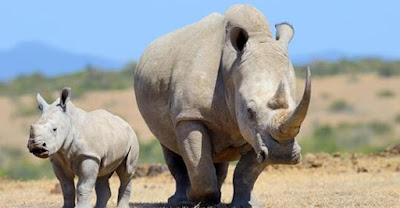When Pakistani customs officers last year refrigerant—a powerful ozone-depleting substance and greenhouse gas—it showed how strong enforcement of environmental laws can make a real difference to protecting the planet.
In the largest seizure of its kind for Pakistan, customs authorities confiscated 18,000 kilograms of the refrigerant at Karachi Port in October 2018. The bust came when a customs officer, Rahmatullah Vistro, received a tip about the smuggling plans.
Vistro is one of many customs officers around the world who have received UN Environment training to identify ozone-depleting substances smuggled by methods such as misdeclaration and mislabelling—as was the case with this shipment.
Countries are phasing out hydrochlorofluorocarbons like R-22 under the Montreal Protocol, the treaty that protects the ozone layer. According to the latest Scientific Assessment of Ozone Depletion, stratospheric ozone has been recovering at a rate of 1 to 3 per cent per decade since 2000, thanks to actions taken under the Montreal Protocol.
R-22’s destructive impacts on the ozone layer are compounded by its huge global warming potential—over 1,800 times that of carbon dioxide. The greenhouse gas emissions from this shipment would have been equivalent to burning over 132,000,000 kilograms of coal.
Even so, demand for controlled substances is still high in some places where alternatives are expensive or don’t work as well at extremely high temperatures. The illegal trade in ozone depleting substances is worth almost US$70 million per year, according to the latest estimates.
Such successes show that enforcement of environmental laws is possible, even if it is not yet the norm.
UN Environment’s first-ever global assessment of environmental rule of law, the result of exhaustive research throughout 2018, found weak enforcement to be a global trend that is exacerbating environmental threats, despite a 38-fold increase in environmental laws since 1972.
“This report solves the mystery of why problems such as pollution, declining biodiversity and climate change persist despite the proliferation of environmental laws in recent decades,” says David Boyd, United Nations Special Rapporteur on Human Rights and the Environment
. “Unless the environmental rule of law is strengthened, even seemingly rigorous rules are destined to fail and the fundamental human right to a healthy environment will go unfulfilled.”
Strong institutions can enforce environmental laws and ensure more effective management of natural resources. UN Environment works with countries to strengthen enforcement and compliance by promoting a rights-based approach to environmental management and by strengthening capacities to enforce legislation and combat violations.
“We have the machinery in the form of laws, regulations and agencies to govern our environment sustainably,” says Joyce Msuya, Acting Executive Director of UN Environment. “Political will is now critical to making sure our laws work for the planet.”UN Environment works to build public support for the fight against environmental crime, thus encouraging governments and authorities to crack down through the laws already in place. For example, the Wild for Life campaign has mobilized millions of people in the fight against wildlife trafficking since its launch in May 2016. In 2018, the campaign’s advocacy helped bring greater protection for the snow leopard when the Government of Mongolia revoked mining licenses in Tost Nature Reserve.
UN Environment and partners also encourage further action through recognizing and awarding those who enforce laws.
For example, when a Thai court in 2018 sentenced wildlife kingpin Boonchai Bach, a 41-year-old Thai-Vietnamese national, to two years in prison for smuggling 11 kilograms of rhino horn, worth US$700,000, it was a major coup worthy of recognition. The team that delivered the evidence—the Thai Customs, the Royal Thai Police, and the Department of National Parks, Wildlife and Plant Conservation for their work.
“I just dream about how to achieve a big goal like this, to hit the top of the syndicate,” says Klairong Poonpoon, a director in the Wildlife Conservation Bureau of the Department of National Parks, Wildlife and Plant Conservation. “We wanted to do something that can have an impact on the region.”
SOURCE UN ENVIRONMENT

No comments:
Post a Comment